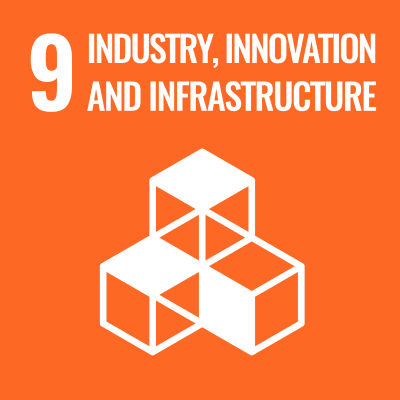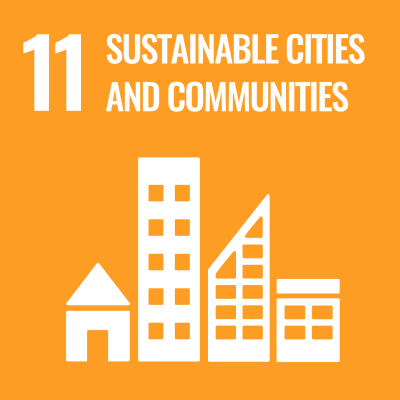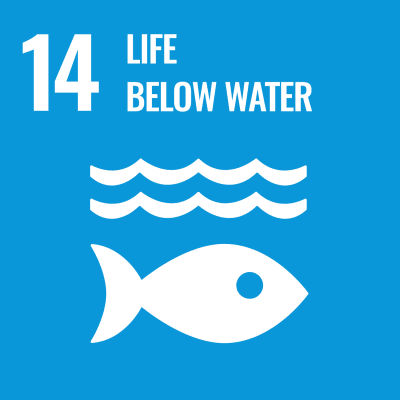-
Faculty of Education, Department of Secondary Education
- Professor
- Kosuke FUKUSHIMA
- Research Field
Japanese language education
- Keyword(s)
Japanese Language Arts, Inquiry, IB, Theory of knowledge
- Research theme
-
- The somewhat vague and ambiguous field of Japanese language education
- International Baccalaureate Language A Japanese (Japanese A),
- Theory of Knowledge (TOK)
- Research on inquiry-based learning methods and their practical application
Outline of research activities



After graduating from graduate school, I have spent many years teaching Japanese language arts at middle and high schools. During my long tenure at a middle and high school affiliated with an international school, I have reflected on and implemented approaches related to the International Baccalaureate program, interdisciplinary learning, and inquiry-based education.
Rather than being a literature enthusiast, I became a Japanese language teacher because I enjoy analyzing and refining logical arguments. My goal is to develop a systematic approach to helping students master Japanese as a language and to theorize the educational practices I implement in the classroom.
Think, Don’t Feel.
It is like a finger pointing away at the moon. Don’t concentrate on the finger, or you will miss all that heavenly glory.- Desired cooperation
-
- Research on lessons incorporating elements of the International Baccalaureate at Ichijo School
- Research on exploratory and conceptual lessons in
- Japanese language classes
-
Faculty of Education, Department of Secondary Education
- Professor
- Shammi DATTA
- Research Field
Teacher Education, IB、Japan Studies (History, Cutlure and Regional Revitalization)
- Keyword(s)
Proactive Learning, Inquiry, IB, Regional Revitalization, Animism
- Research theme
-
- Global standards inquiry based teaching and learning, and IB education in Japan and India
- Regional revitalization
- Animism in Shinto and Hinduism
Outline of research activities


How can teachers motivate learners towards meaningful inquiry and research based learning? Should teachers teach, facilitate, or both? How can interactive, proactive student co-ownership of learning and assessment be realized? These are my primary inquiry questions in the field of teacher education.
My primary inquiry interests in Japan Studies and social studies education are as below: How do local policy and business models come together to bring about regional revitalization? How can we implement case studies in this area in secondary school education, and Japan Studies education?
Analysis of animism in Shinto, Hinduism.and Japanese Buddhism.- Desired cooperation
-
- Inquiry based, global standards, differentiated teaching and learning
- IB education in Japan and India
- Analyzing regional revitalization from the point of view of “successful” business models
-
Faculty of Education, Department of Secondary Education
- Associate professor
- Kaori SASAI
- Research Field
Japanese linguistics, Grammar, Sentences which express emotions in modern Japanese
- Keyword(s)
Non-predicate sentences with Noun Phrases, Sentences which express emotions
- Research theme
-
- Comprehensive concept of non-predicate sentences
- Sentences which express emotions as a kind of sentence of its own
Outline of research activities


This study is about sentences which express emotions in modern Japanese. Modern Japanese studies verse mainly on predicate sentences. Such sentences aim to convey information about “things”. As such, there are scarce studies about sentences which express emotions being treated as a kind of sentence of its own. These sentences do not aim to convey information of the “thing”. An example would be “Beautiful flower!”, which is uttered unconsciously upon being moved by the beauty of any given flower. This type of exclamatory sentences are uttered by speakers to express their emotions and they employ the structure of Noun Phrases. Other kinds of sentences which express emotions are Labeling Sentences like the insult “Bakayaro!”. Since systematic studies of sentences which express emotions are scarce, I would like to attempt to describe and classify them, considering Labeling and Exclamatory sentences as separate sub-groups.I am also attempting to grasp the structure of modern Japanese sentences, not leaning on the structure of predicate sentences.
- Desired cooperation
-
- Studies of sentences which express emotions in classical Japanese
- Studies of sentences which express emotions in languages other than Japanese
-
Faculty of Education, Department of Secondary Education
- Lecturer
- Naoshi NOGUCHI
- Research Field
Modern Japanese Literature
- Keyword(s)
Literature of the Shōwa Era,Osamu Dazai,Symbolism,Detective Fiction,Wartime Literature
- Research theme
-
- The Relationship between Symbolist Poetics and the Methodology of the Novel
- The Fusion of Poetry, Detective Fiction, and Cinema in the Novel
- The Impact of the Wartime Regime on Literature
Outline of research activities


I have been studying Osamu Dazai as a writer who sought to create new methods and styles of the novel—in other words, as an avant-garde author. His early works, including those that may be considered failures, are filled with attempts to question and dismantle the very framework of the novel. I have been exploring where such methodological approaches originated, and how he was able to adapt and employ them under the conditions of wartime censorship. In recent years, I have also been interested in reading Dazai’s works in relation to detective fiction and cinema, alongside those of other writers.
- Desired cooperation
-
- Research on the Reception of Foreign Poetry
- Research on Style and Performance
- Research on the Relationship between Early Cinema and Literature
-
Faculty of Education, Department of Secondary Education
- Lecturer
- Yuichiroh NISHINO
- Research Field
Early Modern English Literature
- Keyword(s)
Fulke Greville, English Renaissance
- Research theme
-
- Critiques of the Jacobean Government in Fulke Greville's Later Works
Outline of research activities
I specialise in English literature of the sixteenth and seventeenth centuries. Particular research interests include Fulke Greville (1554-1628) and the related writers. My current research involves investigating the ways in which Greville, through his works, criticises not only the Jacobean government, but also its monarch, James VI and I (1566-1625). In order to analyse his writing process, I cross-reference the handwritten drafts of Greville’s works, the Warwick Manuscript (Add MS 54570). .

- Desired cooperation
-
- English literature
- Teaching literature and language
-
Faculty of Management, Department of Management
- Professor
- Hitomi YOKOYAMA
- Research Field
Social Psychology
- Keyword(s)
Interpersonal Communication, Social Influence, Data Analysis
- Research theme
-
- Verbal and nonverbal behavior in face-to-face communication
- Relationship between communication skills and interpersonal communication channels
Outline of research activities
Satisfactory communication with others enables us to reduce interpersonal relationship stress and to enhance well-being.
Towards providing communication training that can help people communicate well, I have been studying verbal and nonverbal behavior of dyad, triad or small group in face-to-face and computer-mediated communication. For example, I examined what verbal and nonverbal channels were used by senders, and their channels had effectives on receivers in interpersonal persuasion.
I am currently studying communication behaviors and psychological safety during consensus building.- Desired cooperation
-
- Quantitative and qualitative analysis of communication behaviors
- Communication skill research
-
Faculty of Management, Department of Management
- Professor
- Ichiro YAGI
- Research Field
Media and public opinion
- Keyword(s)
The will of the people a public opinion poll
- Research theme
-
- How has the will of the people been formed?
Outline of research activities
Public opinion is key word in mass media.Because this word is often used.But how the public opinion been formed? A gap between politics and public opinion is very important issue.How has mass media reflected the will of the people? The spread of the Internet has changed our lives. We study about new information age.

- Desired cooperation
-
- The election and the public opinionl
-
Faculty of Management, Department of Management
- Professor
- Keiji WATANABE
- Research Field
Organizational Theory, Strategy
- Keyword(s)
Resource Dependence, Institution, Organizing, Organizational Learning, Ecosystem
- Research theme
-
- Process from making sense of resource to creating innovation.
- Competitive advantage brought by organizational learning
- Interorganizational relationship and mechanizm of ecosystem
Outline of research activities

To survive, the firm needs to construct the new environment where it can achieve competitive advantage. To do so, it first redefines the meanings of the existing resources. After the meaning of a resource changes, the meaning of its resource dependence may also change. The firm makes sense of the context of resource and resource dependence to stakeholders. It then creates its own business model. I research on such firm that changes its project purpose, its strategy and its organizational structure flexibly, and the ecosystem where firms don’t possess exclusively any resource but try to coexist with the others.

- Desired cooperation
-
- Organization Network like Regional Cooperation.
- Cultural Resource.
- Econometrics and Game Theory.
-
Faculty of Management, Department of Management
- Professor
- Makoto UCHIDA
- Research Field
International Business Management, Video Game Development, Project Management
- Keyword(s)
Entertainment, Video Games, Global Business Management
- Research theme
-
- International Business Management in the IT Industry
- Transition of Video Game Development Tools
- Skills Required for Video Game Developers
Outline of research activities



The world is home to an estimated 11.1 million game developers, and this number continues to grow annually. The skills demanded of these professionals are constantly evolving due to the emergence of new platforms, the diversification of game genres, and the rapid advancement of technology. While some areas require highly specialized knowledge that drives the IT industry, the advent of sophisticated development tools has made it possible for even complete novices to create popular games, and those who utilize these tools can also thrive as accomplished developers. Our laboratory analyzes these shifts in the skills required of video game developers and their future prospects by investigating and analyzing global video game market trends and the progress of digital technology.
Simultaneously, by surveying the current situations and challenges faced by developers both in Japan and abroad, we delve into strategies for sustainable corporate growth in the rapidly changing game industry and the ideal approaches to human resource development within this context.
- Desired cooperation
-
- IT Business Strategies in International Corporations
- Development of Human Resources for Video Game Development
- International Marketing Information on the Digital Game Market
-
Faculty of Management, Department of Management
- Professor
- Masahiro KURODA
- Research Field
Statistics
- Keyword(s)
Statistical Science, Computational Statistics
- Research theme
-
- Missing data analysis
- Categorical data analysis
- Development and improvement of statistical computation algorithms
- Nonlinear multivariate analysis
Outline of research activities
One of my research interests is the visual representation of relationships between observed variables. Graph modeling based on graph theory is used for this purpose. I and my collaborators have proposed a method of statistical computation using graph structures.

The other interest is the statistical analysis with missing data. In particular, my work is to develop statistical computation methods using the EM algorithm and Markov chain Monte Carlo. I am studying the acceleration of convergence of the EM algorithm and its application to statistical models.- Desired cooperation
-
- Data anlysis
-
Faculty of Management, Department of Management
- Professor
- Takahisa YAMAGUCHI
- Research Field
Financial,Corporate Strategy,Marketing
- Keyword(s)
Customer Relationship Management, Regional Finance
- Research theme
-
- Customers’ Viewpoints Management
- Development of a Next-Generation CRM System
Outline of research activities

CRM was developed by the laboratory of Yamaguchi is integrated in one database each company on another system decentralized information systems. Here, provides accurate customer information gathering, analysis and sharing. In addition, employees are working, you can take advantage of the system are. Plays the role of generating added value as a result, information infrastructure.
From this company is important, rather than in a specific department or human resources to implement CRM, employees share information, leverage and produce value added customer in problem-solving, while proposals to. It is a new concept of companies that cannot deliver value, judging by the value proposed by the companies using customer.
- Desired cooperation
-
- Based on the theory of new marketing next-generation CRM development.
- Theory of customer value co-creation with customers about to start marketing an embodiment.
-
Faculty of Management, Department of Management
- Professor
- Tetsuo WASHIMI
- Research Field
Tourism Studies
- Keyword(s)
Regional promotion, Tourism industry
- Research theme
-
- Comunity development through tourism
- Locally-led travel planning
- Inbound Traverers Behavior
Outline of research activities



Now that Covid19 has settled down, the diversification of inbound customers will progress. Japan’s tourist areas will be required to be tourist areas that respond to diverse values such as religious diversity such as Halal, veganism, and LGBTQ. It means that each tourist area is required to select the value that is sought and to work on regional development that makes use of the strengths of the area.
Tourism has a broad base and a huge and growing market all over the world. In addition, it is an attractive industry that can realize tourism that benefits all people involved in tourism, including the industry, the business operators, and tourists.
I am interested in researching ways to help realize such a tourist area.- Desired cooperation
-
- To be involved in concrete studies and research on community development related to local tourism
-
Faculty of Management, Department of Management
- Professor
- Tsunehiro HAYASHI
- Research Field
Sports management, sports marketing, sports tourism
- Keyword(s)
Professional sports, Amateur sports, Sport industry, Sports tourism, Outdoor sports, Play
- Research theme
-
- Regional revitalization through sports tourism
- Sports policies
- Visualization of the value of sports by sports SDGs
Outline of research activitiesI am researching regional revitalization through sports tourism at facilities that utilize local natural capital and public goods. The area has capital that can be used as sports facilities such as sea, hills, rivers, waterfalls, earth lakes, parks, and roads. There are many in Okayama! In addition to large-scale facilities such as stadiums and arenas, we are working to create a playground by utilizing these regional capitals and to attract tourists from cities and overseas to the region.

- Desired cooperation
-
- Research related to the promotion of sports tourism
- Research related to sports policy
- Research on sports SDGs
-
Faculty of Management, Department of Management
- Professor
- Yasunori MIYAWAKI
- Research Field
Management studies
- Keyword(s)
Value co-creation, service design, boundary crossing
- Research theme
-
- Creating a common language tahat enables resource integration inside and outside the company
- A corporate system that purses resource integration according to local customers
- Integration of regional resources through the involvement of third parties outside the region
- Regional branding from a cross-boundary perspective as a process of boundary transformation
Outline of research activities

In today’s highly complex society, it is difficult to realize the value that each seeks without transcending the traditional boundaries between the public and private sectors, or between providers and consumers, and integrating each other’s resources. In this laboratory, we are conducting research on the ideas and methods of service design that enable to cross boundaries from conventional standpoints, and on the possibility of co-creating new value through their utilization. We are aiming for practical research that overcomes barriers that hinder the revitalization of organizations and regions, such as diffused hotels that renovate vacant houses and stores into lodging facilities and transform entire town into hotels.
- Desired cooperation
-
- Development of organizational/regional revitalization models using service design ideas and methods
-
Faculty of Management, Department of Management
- Professor
- Yuichi MORI
- Research Field
Computational Statistics
- Keyword(s)
Statistical computing, Data science, Multivariate methods, Social research
- Research theme
-
- Analysis for mixed measurement level data
- Variable selection in multivariate methods without external variables
- Acceleration of statistical computation and its application
Outline of research activities


Let me introduce the second topic of my research interests:
Consider a situation in which we wish to select items or variables so as to delete the redundant variables or to make a small dimensional rating scale to measure latent traits, variable selection in principal component analysis (PCA) is necessary to identify a subset of variables that represents all variables as much as possible.
In the figure below, the left-hand plot is a scatter plot of the 1st and 2nd principal components (PCs) obtained based on all 19 original variables, and the right-hand plot is based on seven selected variables. Little difference exists between the two configurations of PCs. This illustrates the meaningfulness of variable selection in PCA since selected variables can provide almost the same result as the original variables if the goal of the analysis is to observe the configuration of the PCs.
We can perform the variable selection in PCA as a prior analysis in big data analysis, and apply the proposed selection procedures to other multivariate methods such as factor analysis and correspondence analysis.In this topic, we also study on how to deal with categorical/qualitative data (for the first topic), and how to improve the computation effectively (for the third topic).- Desired cooperation
-
- Data analysis
- Social research
- Data science education
-
Faculty of Management, Department of Management
- Associate professor
- Kei HISANAGA
- Research Field
Sports data science, Sports analytics, Sports management
- Keyword(s)
Sports data science, Sports analytics, Sports management, Information strategy
- Research theme
-
- Organizing sports analytics
- Utilizing data for player development and team performance improvement
- Creating an environment for the utilization of sports analytics
Outline of research activitiesIn sports, which continue to evolve with the development of technology, the focus on sports analytics is increasing year by year, and at the same time, we often see sports analysts with such skills in action. On the other hand, there are still many issues regarding the effective use of data and technology.
In sports analytics, there are two types of information that can be used as weapons: subjective information obtained from experience, intuition, and human relationships, and highly objective information using video and data. Based on this idea, I am working on research to solve problems in the field of sports analytics using data science.- Desired cooperation
-
- Utilizing data in sports teams, clubs, and individual players
- Human resource development related to sports
- Collecting data and developing analysis systems in sports
-
Faculty of Management, Department of Management
- Associate professor
- Ryohei TAKAHASHI
- Research Field
Rural Development, Social Innovation
- Keyword(s)
Rural management, Rural innovation, Destination Management/Marketing Organization(DMO)
- Research theme
-
- Sustainability of rural development through a destination management organisation.
- Building a rural development marketing database.
- Role of innovators in regional innovation
Outline of research activities





In response to the crisis of social, cultural, and economic sustainability in rural areas caused by declining birthrates and aging populations, the regional management movement, in which industry, academia, government, and the private sector collaborate to solve problems, has attracted attention.
In this laboratory, we support the construction of marketing databases for tourism marketing organizations that practice regional management, while analyzing the information obtained from these databases and examining effective regional management strategies.
There are two topics in this laboratory,
(1) Research on the relationships and roles among entities in effectively functioning regional management,
(2) Research on the construction of a marketing database that contributes to the formulation of regional management strategies and on evaluation indices for regional management.- Desired cooperation
-
- Developing a marketing database for strategic rural management planning
- Analysis of economic ripple effects of events, etc.
-
Faculty of Management, Department of Management
- Associate professor
- Shinji HONGE
- Research Field
Global management, Sales & Marketing Strategy
- Keyword(s)
Value creation, Business transformation, Experiential learning
- Research theme
-
- EIgyo as a value-creating entity
- Eigyo-driven business transformation
- Eigyo person's growth through experiential learning
Outline of research activities


In Japan, Eigyo is often confused with sales and treated as a subordinate concept of marketing. However, in reality, Eigyo in a company plays a broad role in “connecting” the company with its customers, each department within the company, each department within the customer’s company, partner companies, domestic and overseas, and even society. Our research focuses on Eigyo as a process of business transformation and social problem solving, rather than simply selling products and services, and as a value-creating entity.

- Desired cooperation
-
- Development of Eigyo persons capable of creating value
- Creation of new businesses that solve social issues
- International comparison of Eigyo and sales activities, etc.
-
Faculty of Management, Department of Management
- Lecturer
- Kenta TSUKATSUNE
- Research Field
Social Statistics, Computational Social Science, Onomastics
- Keyword(s)
Name, Naming, Network, Prefecture, Regional Attractiveness
- Research theme
-
- Research on systems and influences of brand names, place names, and people's names
- Research on regional attractiveness
- Research on users of communication services and SNS
Outline of research activities

I collect various data on people’s behavior, attitudes, and psychological states, and conduct research to explore relationships among variables. I focus on social science research methods such as questionnaires and online experiments, but I also aim to conduct research in collaboration with adjacent fields such as humanities and engineering.In particular, I am interested in understanding mechanisms by which people in a position to evaluate and make choices, such as consumers and users of services, compare objects and make decisions. I am currently focusing on the following research topics. (1) Research on mechanisms by which consumers compare and select products and services bearing brand names or proper nouns such as names of places or people. (2) Research on mechanisms by which tourists, current residents, and prospective residents evaluate attractiveness of regions such as prefectures and municipalities. (3) Research on mechanisms by which users evaluate satisfaction with SNS, the Internet, and services using 5G technology.
- Desired cooperation
-
- Research on names of people and things
- Research on evaluation of regional attractiveness of prefectures and municipalities
- Social science research focusing on SNS users
-
Faculty of Management, Department of Management
- Lecturer
- Kota OKADA
- Research Field
sport business, sport management strategy, sport management
- Keyword(s)
sport fan, spectator, professional sport
- Research theme
-
- Characteristics of sports fans
- Sports team management strategy
- Sports team fan acquisition strategy
Outline of research activities
There are good times and bad times in sports, so it is said that in the sports business, you should not think on the premise of “victory.” Of course, it’s good for the team to win a lot, but if you rely on it to do business, it’s easy to reduce the number of spectators and sales of goods when the team can’t win very much. Therefore, it is important to have fans who support the team. Those fans are absolutely indispensable when thinking about sports business. Therefore, I think that if sports fans can clarify the characteristics, sports teams can do “strong management” regardless of their performance, so I research it every day.
- Desired cooperation
-
- Professional sport







